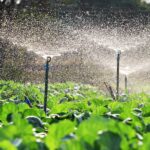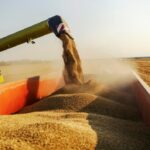Farmers across the country have received a boost following the latest round of government funding and support initiatives aimed at improving food security, climate resilience, and agricultural productivity. With the sector facing rising input costs, unpredictable weather patterns, and increasing pressure to adopt sustainable practices, these new measures are designed to provide both financial relief and long-term support.
Expanded Input Subsidy Program
One of the key announcements is the expansion of the government’s input subsidy program, which now covers a wider range of crops and inputs. In addition to traditional staples like maize and wheat, farmers cultivating legumes, fruits, and vegetables will now qualify for subsidized seeds and fertilizers.
The Ministry of Agriculture confirmed that the subsidy coverage will increase by 20% this season, with a focus on supporting smallholder farmers. Digital registration has also been introduced to reduce fraud and ensure timely delivery of inputs.
Launch of a Climate-Smart Agriculture Grant
Recognizing the growing threat of climate change, the government has introduced a new Climate-Smart Agriculture (CSA) Grant to help farmers adopt sustainable practices. The grant covers investments in solar-powered irrigation, conservation agriculture tools, and drought-resistant seed varieties.
Eligible farmers can apply for grants of up to R150,000, depending on the scale and type of investment. The CSA Grant aims to reduce vulnerability to extreme weather events and promote environmentally friendly farming methods.
Emergency Drought Relief Fund Activated
Following severe dry spells in several provinces, the government has activated the Emergency Drought Relief Fund to support affected farmers. This fund provides assistance in the form of livestock feed, borehole drilling, and temporary water tanks.
Farmers in high-risk zones are being urged to apply for assistance through their local agricultural offices. In some regions, veterinary services and animal vaccinations are also being offered to prevent disease outbreaks linked to water scarcity.
Access to Low-Interest Credit Facilities
To help ease financial pressure, the Land Bank and other participating institutions have rolled out low-interest credit schemes for farmers. These facilities are intended to improve cash flow and encourage investment in productivity-enhancing technologies.
Loans will be available for activities such as mechanization, fencing, irrigation systems, and on-farm storage. First-time applicants and women farmers are being given priority to promote inclusivity and equitable access.
Youth and Women in Agriculture Incentives
In an effort to attract more youth and women into farming, the Department of Rural Development has launched new incentive packages targeting these groups. Successful applicants will receive start-up grants, mentorship, and training on agribusiness management.
The program supports ventures in poultry, horticulture, aquaculture, and agro-processing, among others. With food systems evolving rapidly, this move is expected to encourage innovation and create sustainable employment in the sector.
The latest government funding and support announcements signal a strong commitment to strengthening the agricultural sector and ensuring long-term food security. From subsidies and climate resilience grants to credit access and empowerment incentives, farmers now have multiple avenues to improve their operations and adapt to changing conditions. Producers are encouraged to stay informed and take advantage of these opportunities through their local agricultural offices or official online platforms.
Join 'Farmers Mag' WhatsApp Channel
Get the latest Farming news and tips delivered straight to your WhatsApp
CLICK HERE TO JOIN






